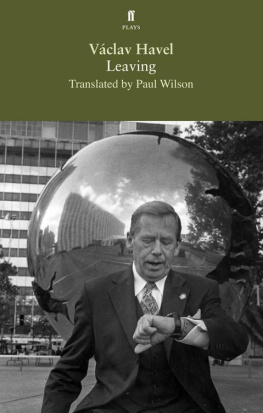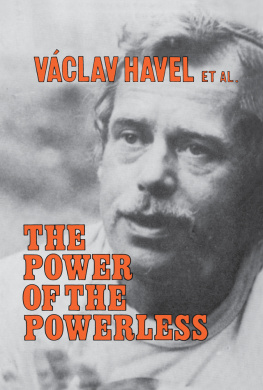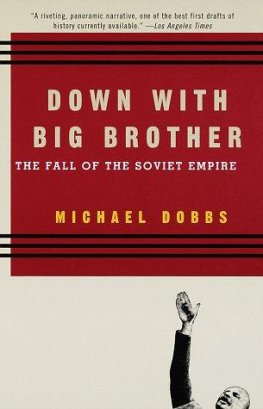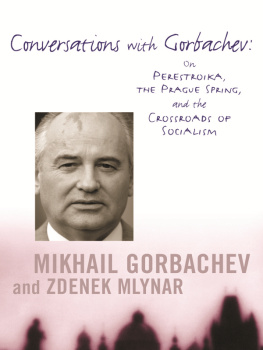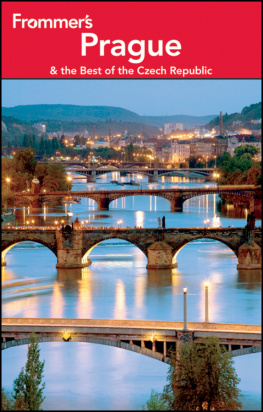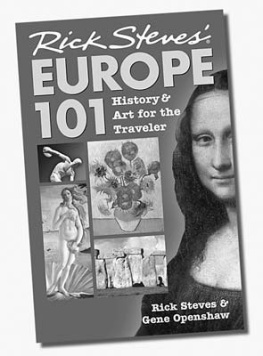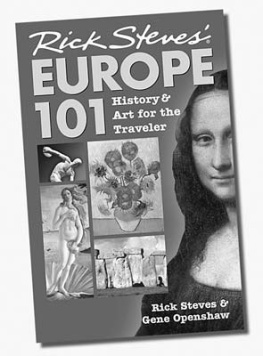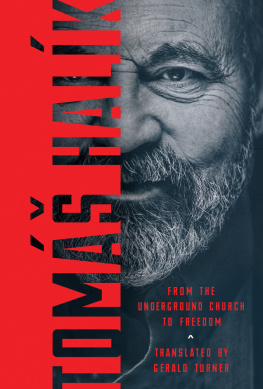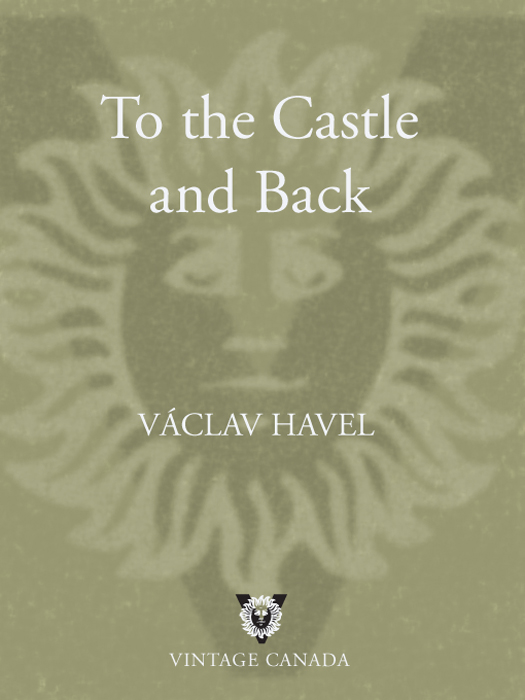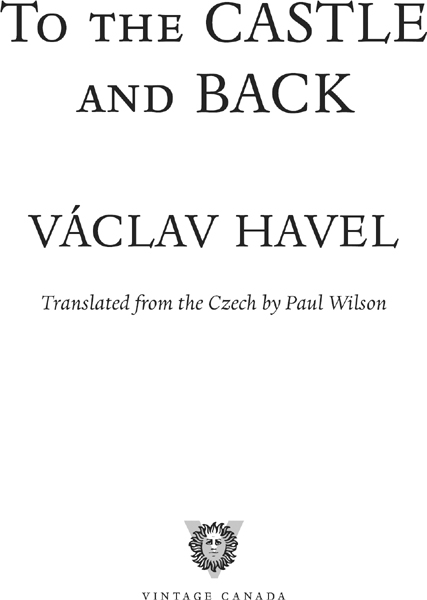Vclav Havel was born in Czechoslovakia in 1936. His plays have been produced around the world, and he is the author of many influential essays on totalitarianism and dissent. He was a founding spokesman for Charter 77 and served as president of the Czech Republic until 2003. He lives in Prague.
Paul Wilson lived in Czechoslovakia from 1967 to 1977. Since his return to Canada in 1978, he has translated more than twenty books of Czech literature into English, including novels by Josef kvoreck, Bohumil Hrabal, and Ivan Klma, and most of Vclav Havels prose works. He is based in Toronto and works as a freelance writer and editor.
ALSO BY VCLAV HAVEL
Prose
The Art of the Impossible
Summer Meditations
Open Letters: Selected Writings: 19651990
Disturbing the Peace
Letters to Olga
Vclav Havel or Living in Truth
(essays by and about Havel)
Plays
An Evening with the Family
The Garden Party
The Memorandum
The Increased Difficulty of Concentration
A Butterfly on the Antenna
Guardian Angel
The Conspirators
Private View
The Beggars Opera
Audience
The Mountain Hotel
Protest
The Mistake
Largo Desolato
Temptation
Slum Clearance
Tomorrow
For Da
Preface
I am delighted that this strange little book of mine is now available to English-speaking readers. I was unable, nor did I wish, to write a fullblown memoir, but after everything I have lived through, I felt I owed people an account of some kind. So I decided to fashion a special kind of collage. It has its own architecture, one that unfolds and interweaves themes and motifs and time periods. It builds slowly, gathering momentum as it goes. I wrote it quickly, without a specific reader in mind. As a result there are some passages that may not interest all of my fellow citizens, and others that non-Czech readers may find hard to follow. Still others refer to events that have long since been carried away by time. And yet, rather than make cuts, I let these passages stand because they belong to the flavor and the fabric of the times, and because I wanted to remind readers that I was not just taking part in routine changes of government; we were building a new democratic country, as it were, from the ground up.
If you occasionally feel like putting the book aside because it seems to skirt some of the world-shaking events that I lived through, or to burrow too deeply into exclusively Czech or Czechoslovak matters, I urge you to skip ahead. Its easy to do because the book is divided not only into chapters, but into short sequences, separated by horizontal lines. But whether you read it whole or piecemeal, I will be satisfied if you feel this book has given you something of value.
Vclav Havel
CHAPTER ONE
Washington, April 7, 2005
Ive run away. Ive run away to America. Ive run away for two months, with the whole family; that is, with Da and our two boxers, Sugar and her daughter Madlenka. Ive run away in the hope that I will find more time and focus to write something. I havent been president now for two years, and Im starting to worry about not having been able to write anything that holds together. When people ask me, as they do all the time, if Im writing something and what Im writing, I get mildly annoyed and I say that Ive already written enough in my life, certainly more than most of my fellow citizens, and that writing isnt a duty one can perform on demand. Im here as a guest of the Library of Congress, which has given me a very quiet and pleasant room where I can come whenever I want, to do whatever I want. They ask nothing from me in return. Its wonderful. Among other things, I would like to respond to Mr. Hvdalas questions.

Id like to start the conversation with a question that touches on the second half of the 1980s, when you became the most famous dissident in Central Europe, oras John Keane wrotea star in the theater of opposition. Do you remember the moment when it first occurred to you that you would have to enter into politics, that your role as a playwright, essayist, and thinker would no longer suffice?
In the first place Id take issue with the designation star in the theater of opposition. We did everything we could not to separate ourselves into the stars and the others. The better known someone among us became, and thus the better protected from arbitrary repression, the more he tried to come out in defense of those who were less known and therefore more vulnerable. The regime, after all, held to the principle of divide and conquer. To some they said: How can you, sir, an educated man respected by everyone, demean yourself by associating with such losers? To others they said: Dont get mixed up with those guys; theyre a protected species. Theyre always going to lie their way out of trouble, and theyll go scot-free and leave you to pay the price. Its understandable that in such circumstances we placed a special emphasis on the principle of the equality of everyone who somehow expressed opposition to the regime.
In the second place, you know very well that I have constant doubts about myself, that I blame myself for everything, plausible and implausible, that Im not very fond of myself. An individual like me finds it very hard to accept, without protest, the claim that he is a star.
On the other hand, I have to admit that I probably do have a certain ability to bring people together. As someone with a visceral aversion to conflict, tension, and confrontation, especially if they are pointless, and moreover, as someone who hates it when the conversation goes around in circles, I have always tried to contribute to a consensus among people and to find ways to transform a common position into visible action. Perhaps it was these qualities of mine that in the endwithout my wanting to or trying tobrought me to the forefront and made me seem, to some, like a star.
And now, finally, to the nub of your question: I dont think you can find any clear demarcation line in my life separating the time when I did not devote myself to politics from the time when I did. To some degree I have always been concerned with politics or public affairs, and to some degree I have alwayseven as a mere writerbeen a political phenomenon. Thats the way it works in totalitarian conditions: everything is political, even a rock concert. There were, of course, differences in the nature or the visibility of the political impact my activities had: in the 1960s, that impact was different from what it was in the 1980s. From that point of view, the one genuine watershed in my life was November 1989, when I agreed to become a candidate for the presidency. At that point the issue was no longer just the political impact of what I did; it was a political function, with all that that job entailed. I hesitated until the last minute.
Did the prospect frighten you or entice you?
I found it more frightening than enticing. It was something completely new. I hadnt prepared myself for a presidential role from my schooldays the way American presidents do. I had only a few hours to make a decision that would fundamentally change my life. In the end what probably won me over was the appeal to my sense of responsibility. People told me exactly what I would later often say to others when trying to draw them into politics: you cant spend your whole life criticizing something and then, when you have the chance to do it better, refuse to go near it. This appeal, moreover, was accompanied by an attempt to persuade me that my candidacy was the only possible solution in this particular revolutionary situation and that had Ias the central figure in this processsuddenly refused any further engagement, refused to bear the consequences of my own previous actions, it would have turned all our efforts upside down and been a slap in the face to everyone.


